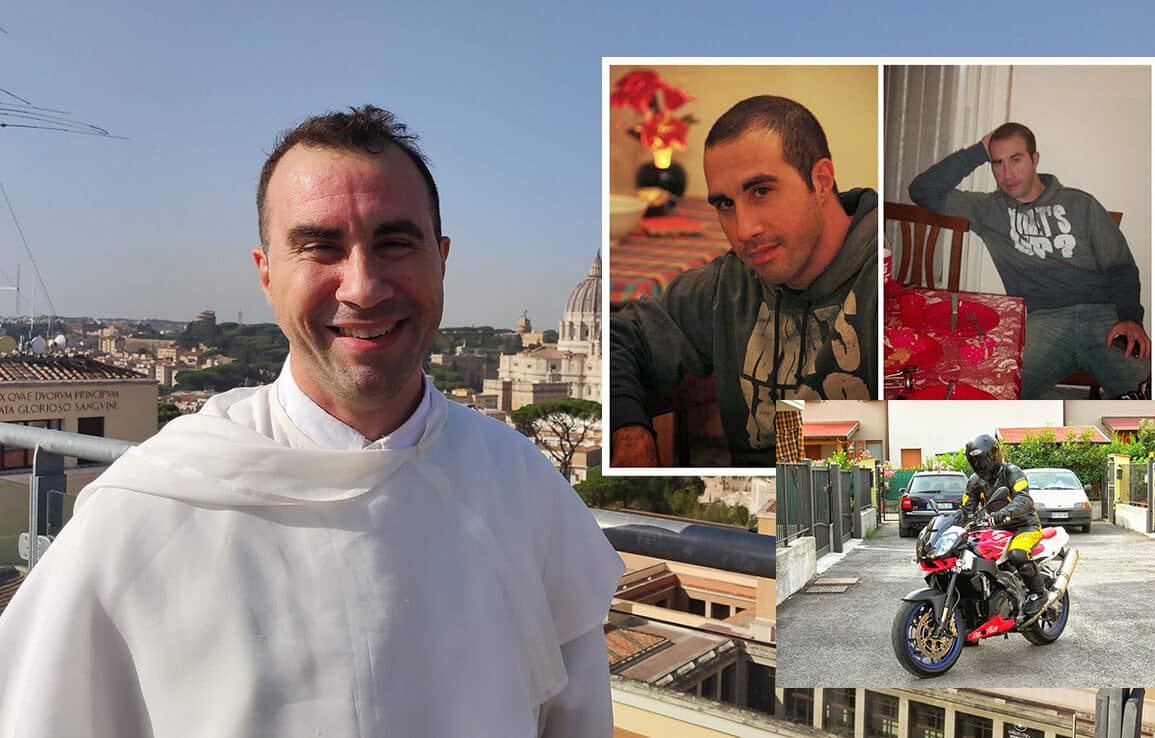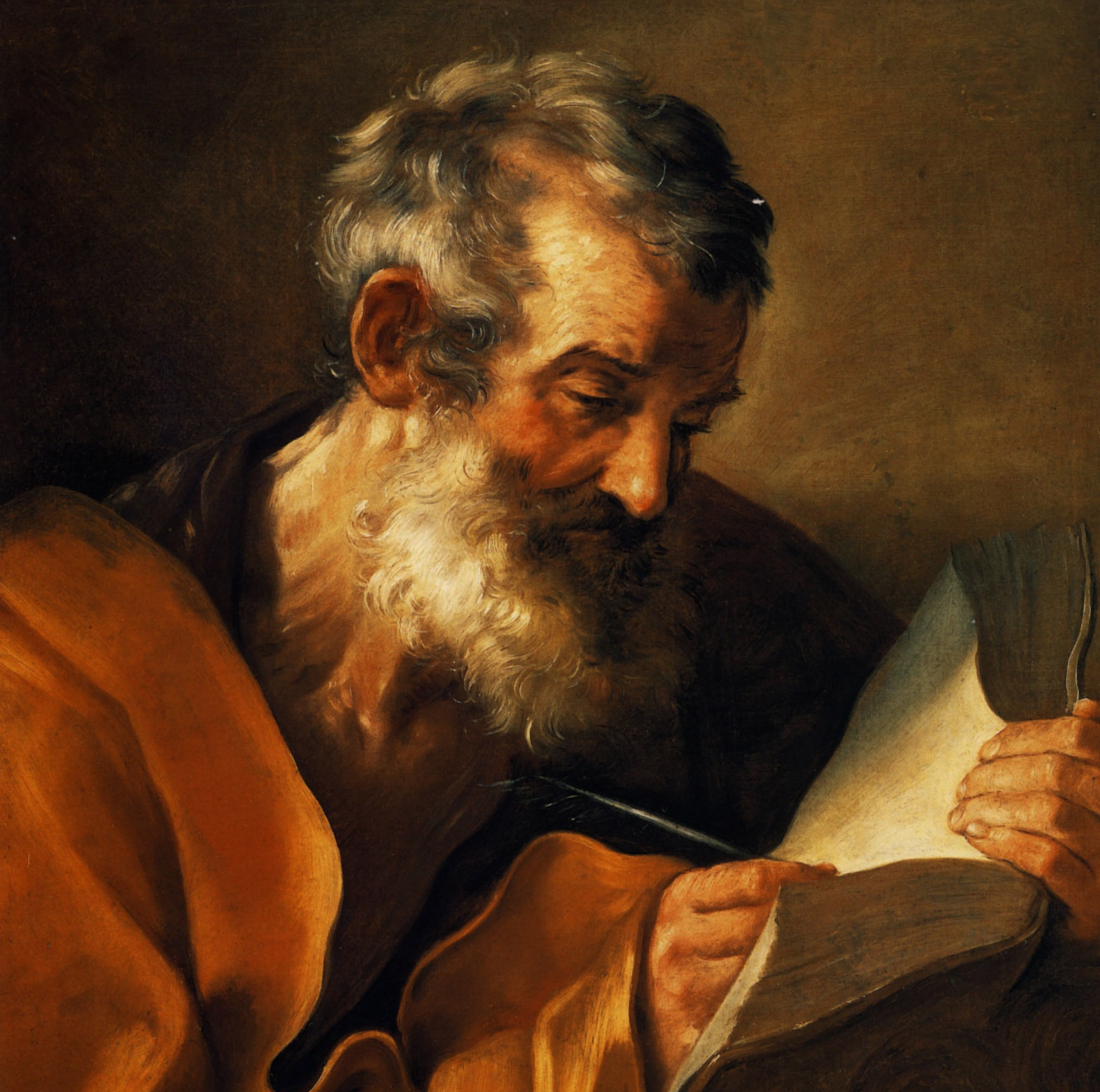Father Salvatore Fazio was born into an atheist family, which converted when he was 15 years old. When he grew up he distanced himself from his family; He left home to live hedonistically and focused on success; and, after descending into the “dark jungle”, the Virgin of Pompeii took him along the path of Saint Dominic of Guzmán and Saint Catherine of Siena.
The path to true happiness for a Dominican priest
In the vibrant heart of Palermo, on May 3, 1980, Salvatore di Fazio, a Dominican priest, was born. In his family, God and faith were something indifferent. Raised in a search for happiness, centered on money and power, his life took an unexpected turn at the age of 14, when his parents converted and began to attend the Church, marking the beginning of his spiritual journey.
He began to go to confession regularly and joined the neighborhood’s Franciscan Youth. Although, at that time, his commitment to the faith was more an act of respect for his parents than a personal choice. In any case, the spark of faith, although initially weak, ignited a fire that would become a burning flame in the years to come and would ultimately make him a Dominican priest.
Martial arts, girlfriend, house, dog and car
At 18, he left home. He was a Karate and Kung-Fu instructor. At age 25, Salvatore was living with his girlfriend and enjoying buoyant professional success. At 28, he had bought a house and had a dog, a car and an apparently perfect life, he divided his time between home, work and sports. However, unhappiness consumed him.
At that moment, thanks to an encounter with a person, he began little by little to get closer to God again. In October 2008, he confessed again after ten years. The change was so strong that his girlfriend couldn’t stand it and, after eleven years of dating, he decided to leave her.
The dark jungle and the loss of a perfect life
The dark forest, as described by Dante Alighieri in his Divine Comedy, became the vivid metaphor for Salvatore’s existential crisis. The traumatic separation from his girlfriend marked the beginning of a dark and unknown period for him. The dark jungle was not an external darkness, but an internal journey, a struggle between light and darkness. Inspired by Dante Alighieri, Salvatore found himself in the middle of his life’s path, lost but searching for direction.
This period, characterized by emotional desolation, became an introspective journey. The darkness, far from being an insurmountable obstacle, became a catalyst for deep reflection and search for meaning. “For the first time I was led down a path I had not chosen at all, and this confused me.” Like Dante Alighieri, “in the middle of the path of our life, I found myself in a dark jungle, because the straight path was lost.” But the jungle was “dark” not because there was darkness, but because he was not used to all that light and what he believed to be his “straight path” was actually the tortuous life that he himself had chosen.
Rediscovering faith and true happiness
For five years, Salvatore walked within the Catholic Church. Guided by a spiritual companion, Salvatore explored the depths of his soul, understanding the complexities of his existence and recognizing the call of God. This period of redemption led him to understand his mistakes and to separate himself from toxic friendships. Each step brought him closer to the love of God.
During this time, Salvatore underwent an internal metamorphosis, abandoning the chains of despair and dissatisfaction. The Church, to which he initially turned as a temporary refuge, became the foundation of his spiritual rebirth.
London and the existential question
In 2011, searching for answers, Salvatore moved to London. Hoping, perhaps, to find a woman with whom he could form a healthy, Christian family. But, although he met some very good girls, the relationships did not work because he did not find the happiness he was looking for. The job, although very well paid, no longer satisfied him. With the help of his spiritual father, he asked himself an existential question: could he find happiness in another state of life?
This seemingly simple question triggered deep reflection. Salvatore became nervous, he was convinced that he could only be happy with a woman at his side, but he was challenged by the possibility of a different calling. However, the seed of religious vocation, planted years ago, began to germinate, and he began to look around him to see if there was any religious order that could satisfy his desire for happiness.
The Virgin of Pompeii, Saint Dominic and Saint Catherine of Siena, on the path to being a Dominican priest
One night, immersed in these thoughts, Salvatore remembered a painting that was in his grandmother’s room: the Virgin of Pompeii. He remembered the Virgin, but he did not know who the Dominican priest or the woman who accompanied her were. He embarked on a search that led him to discover Saint Dominic de Guzmán and Saint Catherine of Siena. The connection was instantaneous, as if the figures of these saints had been waiting forever.
Starting in 2012, Salvatore became increasingly close to the Order of Preachers in Italy. However, each encounter was shrouded in doubts and trials. The vocational encounters, the pre-novitiate and the novitiate were tentative steps towards an improbable destiny years ago: being a Dominican priest. It was in the novitiate where he discovered that he was really happy in his new state of life.
After eight years of training, following the path of saints such as Thomas Aquinas, Luis Bertrán or blessed Francisco de Posadas, a Dominican priest, Salvatore fulfilled his dream of preaching to others “for their salvation, my happiness and for the greatest glory.” of God”.
Gratitude from a Dominican priest
«And it is precisely for this reason that I continue my studies at the Pontifical University of the Holy Cross. For a Dominican priest, study, with a view to preaching, is a sacred duty! Therefore, I want to thank all the benefactors of the CARF Foundation for the help they provide to priests and seminarians, whether diocesan or religious, so that we can better serve the people of God.










